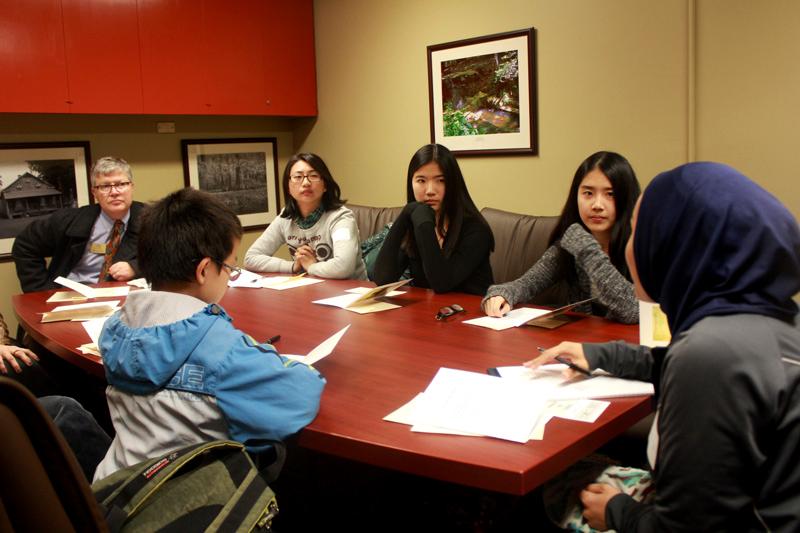Kaitlyn Nott left her home in South Korea to have a college experience that would be different from her friends back home. She was finished with her years in the Korean school system, being ranked against every student in her class and having to spend five to six hours a day after school with a tutor to stay on top of her grades. Nott always knew she wanted to go to America for college and was ready to travel over 7,000 miles away.
“In my opinion, the pressure to perform is a universal thing, but it’s very prevalent in Asian countries,” said Nott, a sophomore majoring in economics. “The Asian culture is just very focused on academics and good grades, and you feel that pressure from your family most. When you grow up in that environment, you feel that for yourself, too.”
Once Nott enrolled in The University of Alabama, she realized that stress easily translates into every language. It would have followed her no matter how far away she went.
A study published by the National Institute of Health researched depression in college students and the results showed international students were at greater risk for depression and even showed higher rates of it than their American counterparts. The study reported contributing factors such as feelings of isolation, lack of family support, financial pressures and the inability to be employed in America.
“It’s a little better here because my mom can’t bother me as much, but I’ve just had this pressure for so many years,” Nott said. “I don’t want to disappoint my parents or myself, and if I do mess up or my grades aren’t right, then I feel like I’m losing control.”
Nott has experienced some relief being away from Korea, but she still battles anxiety in Alabama. She said she enjoys how college in America is more than just academics. Even though she loves that it’s about growth and “the experience,” she discovered it difficult to keep up with the lifestyle.
“It’s just about managing my time and not letting myself get anxious,” Nott said.
The University’s international students come from 78 different countries and make up 5 percent of the student population.
A Finnish study on international students conducted at the Central Ostrobothnia University of Applied Sciences suggested that people going out of their way to engage in conversation with an international student can make a difference in the students’ lives. International students need to have a support system and to meet other students from their same culture to help them adjust. The study reported that building a social network of friends is the best tool to help international students succeed.
Pablo Ramos Ferrer, a sophomore majoring in chemistry and chemical engineering, never dreamed of attending school away from his hometown of Ibiza, Spain. He attended the same school since he was three years old and enjoyed the comforts of having a strong community behind him.
“It was really rough at the beginning mostly because of language,” Ferrer said. “I didn’t speak that much English. I barely talked to anybody. Coming here was just a big shock.”
It took Ferrer a few months to adjust, but he said he enjoys having all the options of extracurricular involvement to keep him busy.
“You just have to get involved,” Ferrer said. “I started first semester competing in a couple business competitions, and through that I ended up having an internship my second semester, and most of my friends I have right now I’ve met through that.”
Ferrer is now president of the International Student Association and a University Steward. He tries to encourage other international students to branch out so that the anxiety of moving does not overwhelm them to the point of depression.
“I definitely have some friends that basically just go from dorm to class, class to dorm and that’s their day,” Ferrer said. “This is just too much for them. I mean it’s even too much for me, but it’s all how you deal with it. I feel like everyone here just does their own thing, and if you don’t take the initiative and do something yourself, no one’s going to come and give it to you.”









